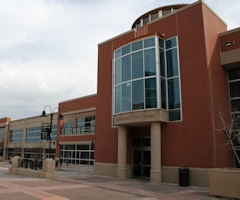Last fall, City Council voted to spend over $60,000 for a Boulder marketing research firm to conduct a “housing study” in order to justify the Administration’s continuing push for more residential housing development. The process was faulted from the beginning as the “study” was nothing more than a marketing survey on how to attract housing buyers to our market. This was the same fault that corrupted the Rooney Valley “master plan”.
In both cases, the “studies” started with the assumption Lakewood needs to build more residential housing. Then the marketing studies proceeded to examine what types of housing would it take to attract newcomers to Lakewood. While this type of marketing research study makes perfect sense for a housing developer, it is not appropriate for a city government. Despite the Administration’s attempts to get into the housing development business (does anyone remember the ill-fated plan to buy and develop the contaminated parts of the Denver Federal Center in 2015?) providing affordable housing to everyone who wants to come to Colorado is NOT the proper function of a city government.
The consultant’s marketing survey was based on a survey of 1.) people who live in the western Denver metro area and 2.) employees of Lakewood businesses. Current Lakewood residents were NOT the focus of this survey. This is relevant because it will be the current residents who will have to pay the price and suffer the adverse consequences of yet more housing development.
As one might imagine in a survey that asks what people would like to have (“I want cake, and eat it too”) the survey confirmed the potential newcomers want lots of housing amenities and low housing prices. While the consultant spent over two hours telling the Council what it would take to attract newcomers there was no consideration of whether the current residents would get any real value out of a marketing efforts to attract more people. The only recognition of our current residents was an effort to poo-poo any safety concerns as nothing more than “perception problems”.
Left out entirely was the simply economic fact that to reduce housing costs would require lowering home values of current homeowners. The congestion problems of overdevelopment was also conveniently ignored.
Surveys of our current residents reveal very different priorities. In the 2016 citizens survey, residents reported a 10 point drop in a sense of community safety and a 9 point drop in a sense of community since the last citizens survey. When it came to priorities, the crime prevention was important to 91%, overall appearance was important to 89%, the natural environment was 80% and reducing traffic and congestion was important to 77%. On the other hand the bottom three priorities were variety of housing options (59%), city involvement in redevelopment (57%) and new amenities around light rail (38%). While most priorities were relatively stable from year to year, the largest jump was a 11 point rise of the importance of reducing traffic congestion. When it came to the most important factor in Lakewood, reducing traffic congestion jumped to the second highest priority (after crime prevention) rising 4 points since the previous citizens’ survey.


Thank you for keeping this in the public eye. Your points are accurate and critical for cotizens to soeak about to the current City Mgmt. Ideas and solutions and ordinances proposed get delayed hoping we will go away. The annexation discussion was postponed after the citizen ire about it expressed last year and this january to May 15 hoping we would lose steam. AND increasing density never lowers housing costs wherever it is done. See Sunnyvale or Cupertino, Ca or Austin TX and others. Infact we have some of the most affordsble housing costs in the country and it is a key reason we are one of the top 3 markets that millennials are choosing to move here. Lastly, their own housing study referred to above revealed that the majority–over 53%— of residential building in Lakewood since 1985 has been the low end: low-rise multi-family structures. (See video of this presentation from city council meeting where phase one was presented; i was present)